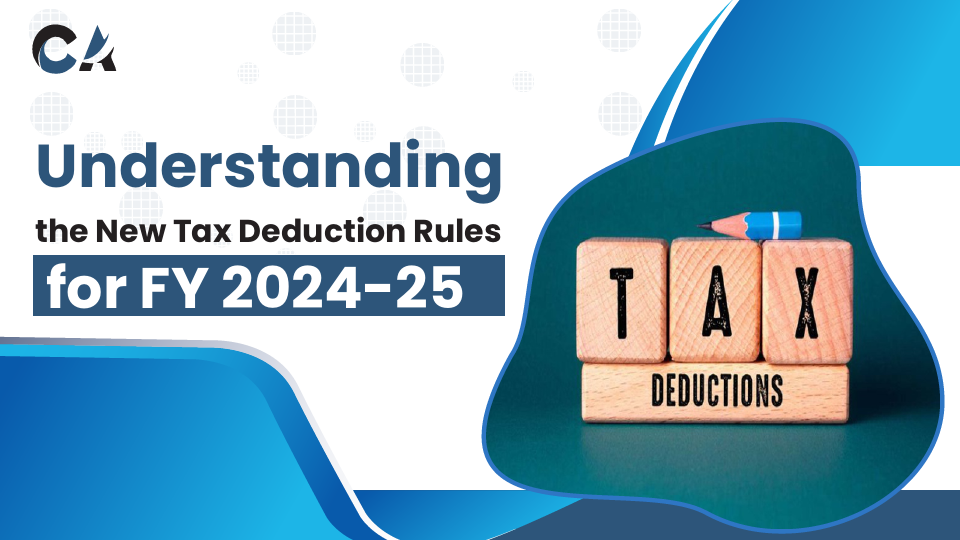Understanding the New Tax Deduction Rules for FY 2024-25
As the financial landscape evolves, so do the tax deduction rules in India. The fiscal year 2024-25 brings several changes that taxpayers need to be aware of to optimize their tax planning effectively:
Key Changes in Tax Deduction Rules
- Revision in Standard Deduction: The standard deduction for salaried individuals has been revised upwards to ₹75,000 from the previous ₹50,000. This increase aims to provide more disposable income in the hands of taxpayers.
- Health Insurance Premium: The deduction limit under Section 80D for health insurance premiums has been enhanced. Individuals can now claim a deduction of up to ₹50,000 for health insurance premiums paid for themselves, spouse, children, and parents aged below 60 years. For parents aged 60 years and above, the limit is ₹75,000.
- Home Loan Interest: The deduction on home loan interest under Section 24(b) has been modified. Taxpayers can claim a deduction of up to ₹3.5 lakh on interest paid on home loans for the purchase of affordable housing (subject to certain conditions).
- Investment in NPS: The tax benefits under Section 80CCD for contributions made towards the National Pension System (NPS) have been expanded. Apart from the existing deduction of up to ₹1.5 lakh under Section 80C, an additional deduction of up to ₹50,000 is available exclusively for NPS contributions.
- Electric Vehicle Purchase: To promote eco-friendly initiatives, individuals can now claim a deduction of up to ₹1.5 lakh on the interest paid on loans taken for the purchase of electric vehicles under Section 80EEB.
Implications for Taxpayers
These changes bring both opportunities and considerations for taxpayers. It is crucial for taxpayers to plan their investments and expenses strategically to maximize their tax benefits under the new rules.
Stay informed about these changes and consult with a tax professional to understand how you can optimize your tax planning for FY 2024-25. For expert advice, contact us at +91 911 891 1172.


